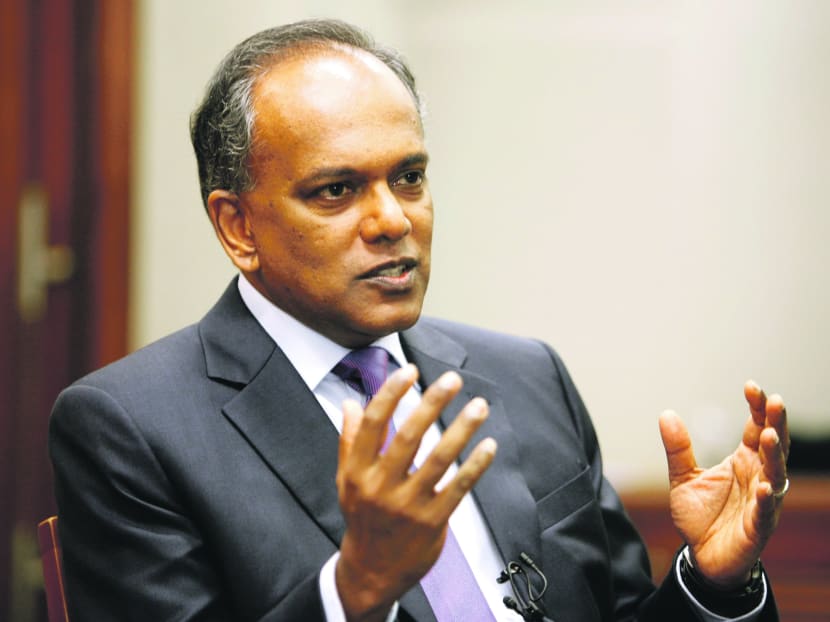Hacking ‘nothing short of terrorism’ if lives are affected: Shanmugam
SINGAPORE — The spectre of hacking — which had dominated headlines in recent weeks — reared its ugly head again yesterday, as two Cabinet ministers separately underscored the gravity of hacking incidents and urged Singaporeans not to trivialise such acts.


SINGAPORE — The spectre of hacking — which had dominated headlines in recent weeks — reared its ugly head again yesterday, as two Cabinet ministers separately underscored the gravity of hacking incidents and urged Singaporeans not to trivialise such acts.
At an evening dialogue with 75 Singapore Institute of Management students, Law and Foreign Affairs Minister K Shanmugam responded to a question on why the Government appeared to be taking the recent hacking threats and attacks so seriously, even though there was little tangible damage, by denouncing hacking attacks as “nothing short of terrorism”, when it affects the lives of people in a world that is thoroughly dependent on information technology.
Citing the example of how facilities such as airports and hospitals are heavily dependent on IT for smooth operations, he added: “When somebody says, ‘You, the government or you, the people of Singapore, do this, and if ... you don’t change these laws, I’m going to hack’ — it’s no different from saying, if you don’t change the laws in the way that I want, I’m going to bomb you, or I’m going to put your house on fire.”
Mr Shanmugam noted that “not enough people” understood this. “They tend to think of actions online as somehow different from physical actions,” he said.
Earlier in the day, Minister for Communications and Information, Dr Yaacob Ibrahim, said on Facebook that “any forms of cyber attacks or threats are actually threats on the people regardless if the intent was malicious or mischievous”.
He said that these include attacks or threats from “curious netizens who claimed to have followed instructions found online”.
The comments were made on the same day when the Singapore Art Museum revealed that the personal data — names, phone numbers, email addresses and, in some instance, nationalities — of about 4,000 individuals who had attended its events in 2011 and this year were found to be illegally published and uploaded on another website. The incident, which was reported to the police, has not been classified as hacking.
And in between the remarks made by the ministers, the websites of 13 schools, including Canberra Primary School, Raffles Girls’ School and St Andrew’s Junior College, were defaced.
The Ministry of Education has referred the matter to the police.
Dr Yaacob said the Republic has been under “cyber attack” since early this month.
He likened hacking to “someone coming into your home uninvited. They snoop around, leave their mark or steal your valuables. They damage your property, and violate your personal privacy.”
At the dialogue, Mr Shanmugam pointed out that cyber security has become a key part of national defence capabilities and that weapons systems are dependent on IT, as are national power grids, air traffic control, hospitals and road traffic signals.
“You use IT to hack into power grids, you can hack and control the air traffic, you can cause accidents ... essentially no different from someone going out there and saying, ‘I’m going to kill you, I’m going to set your house on fire’,” said Mr Shanmugam.
Referring to the youth gang attacks a few years ago, he noted that Singaporeans were unhappy about the incidents and generally value law and order.
In the same spirit, one should not condone violence online, he said.
On Oct 31, a YouTube video purportedly by hacker collective Anonymous threatened “war” against the Singapore Government due to discontent over the new licensing scheme for online news sites.
This was followed by the high-profile hacking of several websites, including some belonging to the Government.
Six suspects have since been hauled up by the authorities and one has been charged in court.






